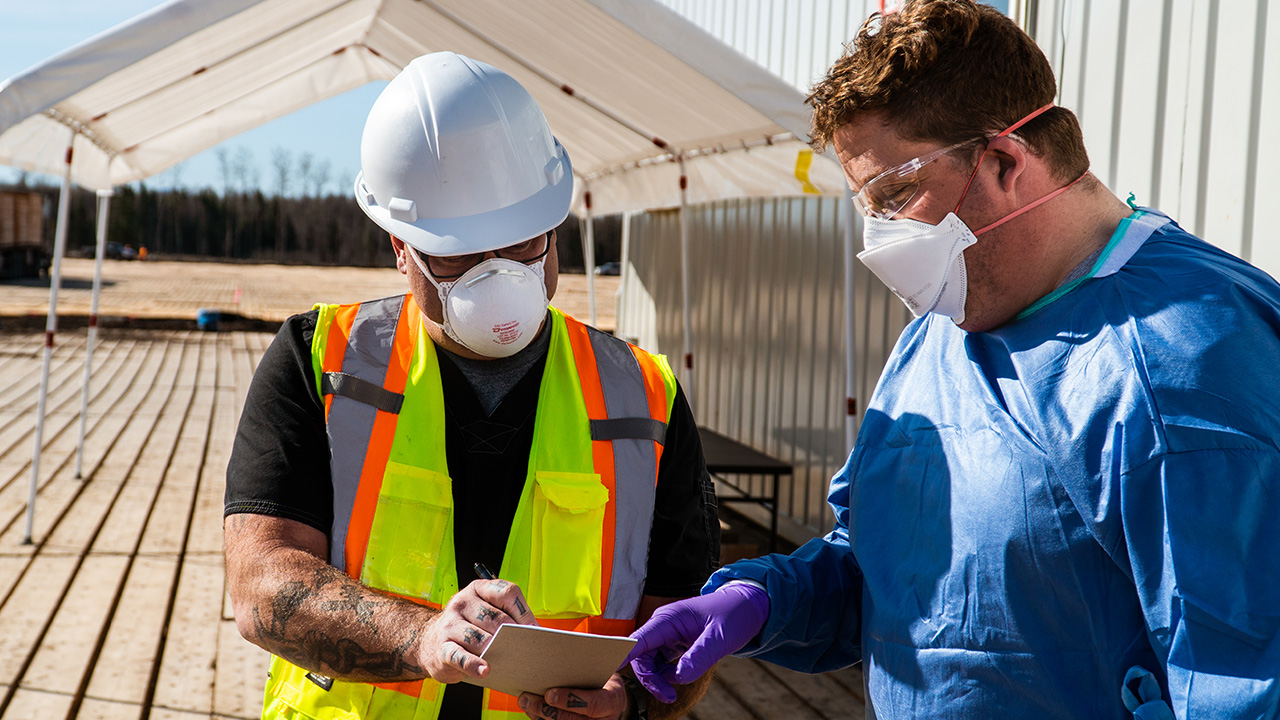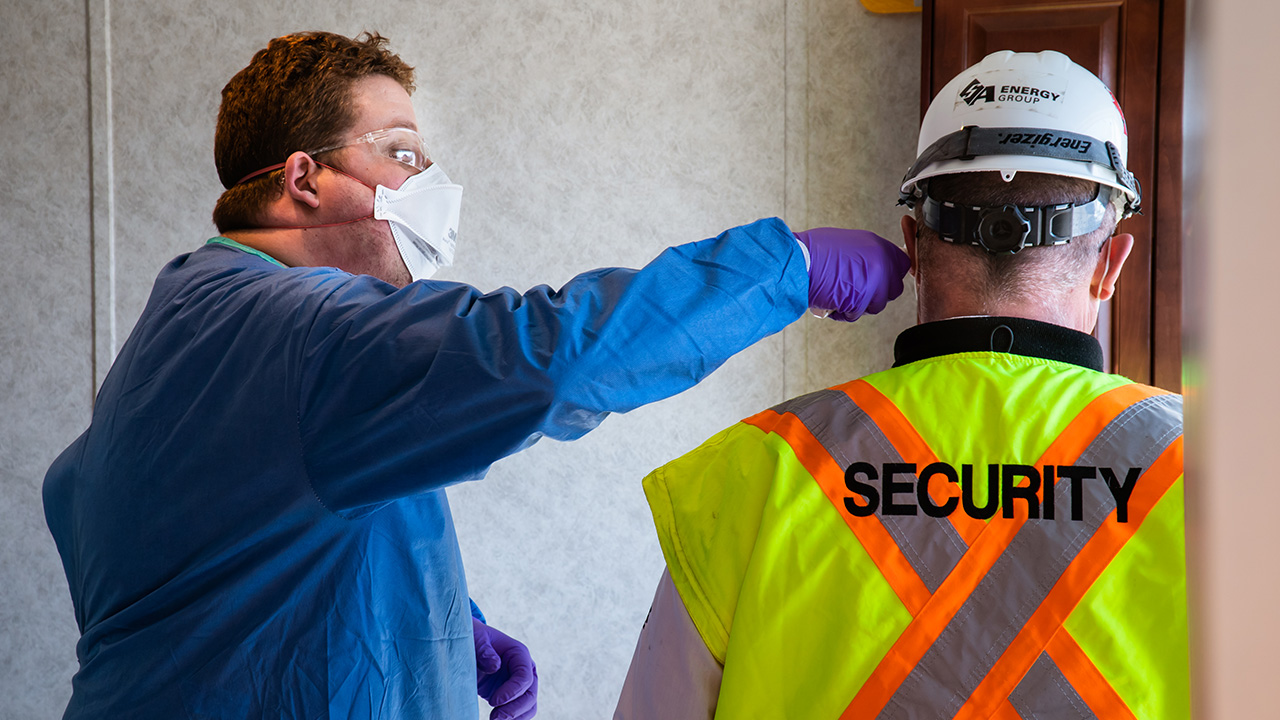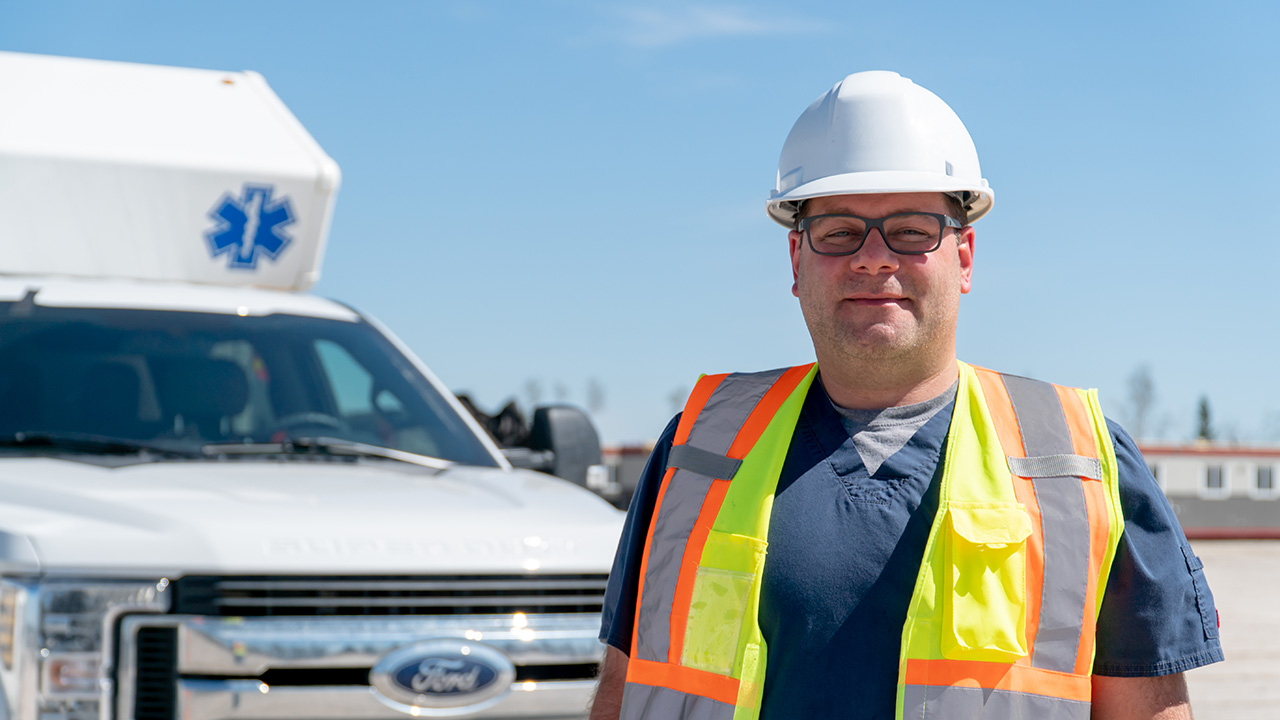On-site medics to support Coastal GasLink workforce health and safety
“Our goal is to try to mitigate the impact that [any medical situation] would have on the local health care infrastructure by trying to manage them in the field,” said Dr. Michael Evans, International SOS Canada’s Medical Director.
“As well as emergency services, we also provide a bridging primary care service to take care of a worker’s basic medical needs, like ordering their prescription, so there's no need for them to go to town to see a physician or a nurse practitioner,” adds Dr. Evans.
Dr. Evans and his team are also advising Coastal GasLink as we adapt our high standards for health and safety to meet all government guidelines and do our part to help slow the spread of COVID-19.
“A global pandemic is a rare event, but International SOS has a global footprint and has provided medical and logistical response to other serious infectious outbreaks,” explained Dr. Evans. “We have the benefit of having a large number of very renowned physicians who provide us with expertise in managing and monitoring pandemics,” he added.
Equally important to Dr. Evans is the connection to health officials and decision makers at the local and provincial level in B.C.
“Our team has a very strong relationship with both regional health officers and local hospitals in British Columbia,” said Dr. Evans. “We participate in ongoing dialogue and strategy sessions to share information about our operations, and to make sure that Coastal GasLink has the most current information with which to adjust their plans and be prepared every step of the way.”
That wealth of expertise and commitment to health and safety is also shared by International SOS medical professionals on the ground.


“We are constantly adapting to execute our plans and it’s been very successful,” said Clint Papineau, a Registered Nurse with International SOS who is supporting Coastal GasLink in the Prince George area.
Papineau and his colleagues carry out the protocols they’ve implemented with International SOS. These include educating workers about health guidelines, enhanced screening of workers for symptoms, medical monitoring, and designated quarantine and evacuation protocols.
“These parameters are in place so we can catch something early enough that the employee will be able to isolate themselves,” said Papineau. “My colleagues are front line workers and we take this very seriously. This is part of Canada’s economy and many thousands of people’s livelihoods.”
International SOS and Coastal GasLink continue to work closely with health authorities, including Northern Health and WorkSafeBC, to ensure that we are meeting all health directives and requirements.
“We’ve seen every crew member take the measures in place very seriously. Whether it’s social distancing, wearing personal protective equipment when required, and even reminding each other to be vigilant, we’ve seen our workers care for each other,” said Gibb.
“Everyone is doing their part, and together, we will keep each other healthy and safe – so that we can continue the important work we are doing and deliver significant benefits to British Columbians, today and for the long-term,” concludes Gibb.
As Coastal GasLink prepares plans for the eventual ramp of work, health and safety remain a top priority. Recently issued government guidelines will be applied across the project right-of-way, and work will only ramp up when all measures are implemented and based on required approvals from local and provincial health authorities.
